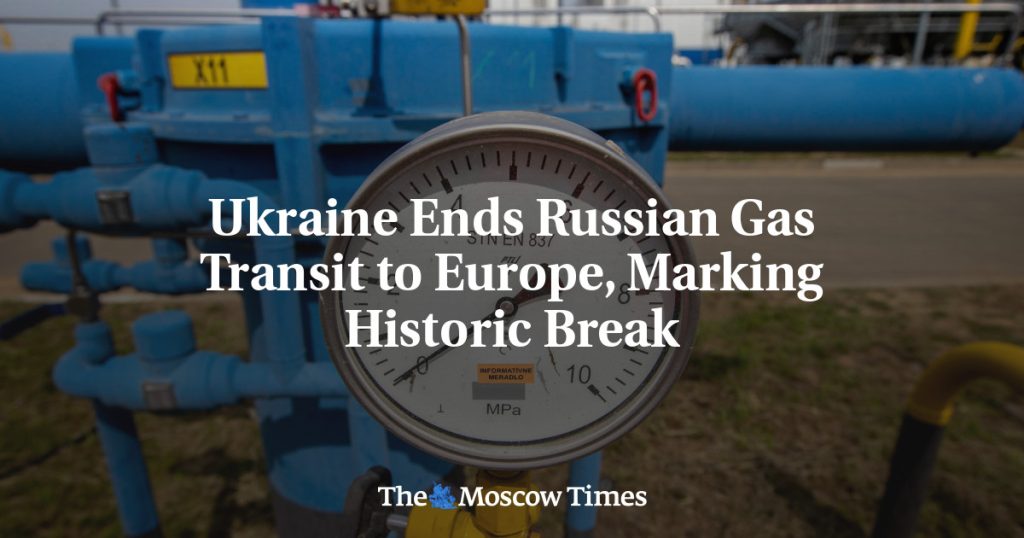The transit of Russian natural gas to Europe via Ukraine came to an end on Wednesday, marking the end of a decades-long arrangement between the two countries. Russian gas had been flowing through Ukrainian pipelines since the collapse of the Soviet Union in 1991, providing revenue for Moscow and transit fees for Kyiv. However, the current contract expired after Ukraine decided not to renew the deal following Russia’s invasion in 2022. Ukrainian Energy Minister German Galushchenko called this a historic event, stating that Russia is losing its markets and will suffer financial losses. Russia’s state-controlled energy giant Gazprom confirmed the halt in gas transit through Ukraine, citing the lack of technical and legal rights to utilize Ukrainian pipelines for shipments to Europe.
The cessation of gas flows underscores the decline of Russia’s dominant role in Europe’s energy market. Russian gas accounted for less than 10% of the European Union’s gas imports in 2023, a significant drop from over 40% before the war. While most EU members have reduced their reliance on Russian gas, some Eastern European countries still depend on it for both logistical and political reasons. Hungary, for instance, remains largely unaffected by the transit stoppage as it receives Russian gas through the TurkStream pipeline that bypasses Ukraine. On the other hand, countries like Slovakia now face increased pressure to tap into reserves and secure additional liquefied natural gas (LNG) imports. European natural gas prices spiked above 50 euros per megawatt-hour in anticipation of the transit’s end, the first time prices have reached that level in over a year.
Despite the disruption, the European Commission reassured member states that preparations for a halt to Russian gas via Ukraine had been in progress for over a year. They stated that specific plans had been made to deal with a scenario without Russian gas transiting through Ukraine. The Commission’s efforts to mitigate the impact of the transit halt indicate a commitment to ensuring the continued stability of energy supplies for member states. While the end of gas flows through Ukraine represents a major shift in the energy landscape, the European Union is prepared to navigate the challenges that come with reduced reliance on Russian gas.
The geopolitical implications of the end of gas transit through Ukraine are significant, as it highlights the deteriorating relationship between Russia and Ukraine. The war between the two countries has not only resulted in the termination of a key energy arrangement but also strained diplomatic ties and increased tensions in the region. The halt in gas flows serves as a reminder of the complex and intertwined nature of energy security, geopolitics, and international relations. It underscores the need for diversified energy sources and infrastructure to reduce dependence on a single supplier and ensure the resilience of energy systems in the face of geopolitical conflicts.
As European countries adjust to the end of Russian gas transit through Ukraine, they are exploring alternative sources and routes for gas supplies. This includes increasing LNG imports, tapping into reserves, and investing in infrastructure to diversify energy supply chains. The shift away from Russian gas opens up opportunities for countries to strengthen their energy security and reduce vulnerabilities to geopolitical disruptions. While the transition may pose short-term challenges, the long-term benefits of enhancing energy diversification and resilience are clear. By adapting to the new energy landscape and embracing innovation, European countries can build a more sustainable and secure energy future.


